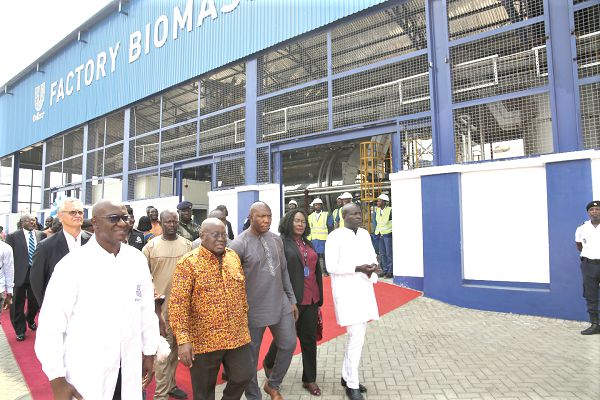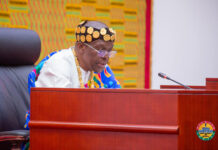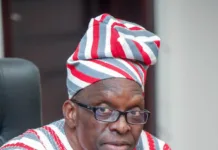
The largest producer and retailer of consumer goods, Unilever has commissioned three new plants at its factory in Tema to expand their operation.
The three new plants are the Personal Care Dryer, Biomass boiler and Orals factory.
The cost of acquiring the Biomass plant is 2.2million Euros, the Personal Care Dryer cost 1million Euros to install and Orals factory investment summed up to 2.2 million Euros.
The company hopes to include solar in its energy mix in the course of the year and engage in more sustainable practices.
They are said to be environmentally friendly plants and part of Unilever’s commitment to ensuring sustainable business practices.
Addressing the gathering at the Commissioning of the factory, Managing Director of Unilever Ghana, Gladys Amoah said “We have something we call the Unilever Sustainable Living Plan. In that plan, we look to make sure that we provide our customers with good quality products at what we believe are acceptable prices”
“We look to make sure that our impact to the environment is reduced and we look to improve livelihoods. For us, this commissioning is part of the three and most importantly our environmental impact is what we are most excited about.”
She added that “if you look at what we call our Biomass broiler, it will reduce our emissions by more than 70%, so cleaner air. If you look at our Personal Care Dryer, that will reduce our carbon emission by a further 12%. So we are adding to creating a cleaner Ghana and a good Ghana for our children to find growing up rather than a Ghana which is polluted and creating illness everywhere”
“But the thing we are still very much excited about is that we can still offer good quality products and now offer, we hope further employment down the supply chain because we will be procuring from local suppliers as much as we can.”
The commissioning of the new plants means that Unilever will now produce locally and export to Nigeria and its sub-regional markets, its oral products such as pepsodent and close-up.
President AKufo-Addo address the gathering lauded the company for the strides they are making in Ghana particularly for their decision to source local materials for production.
He added that the government will do all it can to ensure sound and sustainable microeconomic indicators to help private businesses plan.
According to him, “the days when economic indicators went haywire and through the roof are over. The days of disarray in our public finances, the reason for our recent ‘marriage’ with the IMF, are over.”
He explained that a new fiscal rule, which caps the fiscal deficit at a maximum of 5 per cent and ensures a debt-to-GDP ratio of a maximum of 65%, has been enacted.
In addition to this, he indicated that he established, in December 2018, the Presidential Fiscal Responsibility Advisory Council, composed of independent-minded, renowned economists, and the Presidential Financial Stability Advisory Council, made up of heads of the key regulatory agencies of our financial system, to advise and assist him achieve these targets.
“We are determined to provide stability to our economy to serve as the foundation for its sustainable and rapid growth,” he added.




